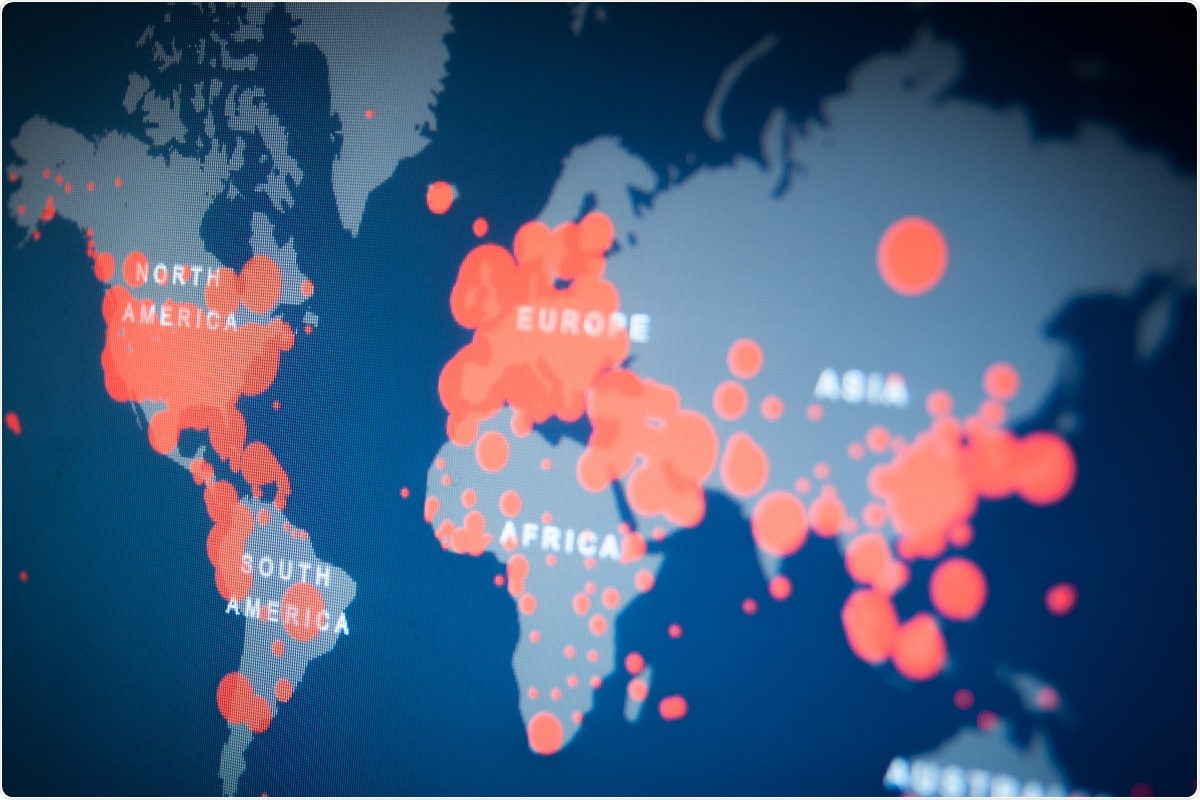The global outbreak of severe acute respiratory syndrome coronavirus-2 (SARS-CoV-2) has caused the ongoing coronavirus disease 2019 (COVID-19) pandemic. To date, this virus has infected around 208 million individuals and has claimed more than 4.3 million lives. In African countries, more than 7.3 million COVID-19 cases have been reported.

Background
Recent data estimates that the African continent has accounted for just 4.1% of the total of 4.3 million deaths due to COVID-19. Earlier on in the pandemic, scientists had predicted a COVID-19 catastrophe in Africa, which is much more severe than what has actually been observed across the continent. South Africa is an exception and accounts for 35% of the confirmed cases and 42% of total deaths reported in 55 countries of the African continent.
The extensive spread and high disease burden were predicted based on transmission dynamics of the virus, socioeconomic deprivation, unsanitary living conditions, and poor healthcare systems throughout the African continent. Several small studies have been conducted in different parts of Africa, but these results were not validated in an Africa-specific context. Cross-reactivity with other micro-organisms and hypergammaglobulinemia due to malaria exposure may affect the sensitivity/specificity of these tests. This could further lead to underestimation or overestimation of seroprevalence.
Some studies have argued that factors like the demographic profile and early actions (e.g., lockdowns) are responsible for the lower COVID-19 burden, but there are still many questions unanswered. A new study has been published in the International Journal of Environmental Research and Public Health that highlights the potential lessons that the world can draw from Africa on assumptions concerning viral pandemics. This is particularly important, given Africa’s long experience with dangerous infectious diseases.
Why is the COVID-19 transmission rate low in Africa?
Many governments in Africa acted early to contain the pandemic, and on 22nd April 2020, the World Health Organization highlighted examples of how Africa was leading the global response. Measures such as early border closures, less international connectivity, and lockdowns helped lower the caseload.
Many models have shown a larger incidence of SARS-CoV-2 in urbanized regions, owing to dense living conditions. A large share of the African population (55%) lives in rural areas, leading to lower case numbers. In terms of demographics, only 3% of the African population is over 65, and they live at home with extended families. This is quite different from wealthy countries, where a large number of deaths have been owing to super-spreading events in care homes.
Research has also shown that proper ventilation can reduce the spread of the disease. Air conditioning and heating are completely absent in rural Africa, where most people live. Most Africans have an outdoor way of life, and they spend a majority of their time in fields, where the open-air significantly reduces the chances of viral transmission.
Factors influencing the low mortality rate in Africa
Demographics play an important role in reducing mortality from COVID-19. Research has shown that the demographic of 65–74 years is 35 times more likely to become hospitalized from SARS-CoV-2 infection and 1100 times more likely to die from COVID-19, compared to a reference demographic group of 5–17 years. Africa has quite a young population with a median age of 19.7 years. In comparison, some of the hardest-hit countries have much higher median ages (e.g., the median age in the UK is 40.5 years and in the USA is 38.5 years).
It is well documented that people with pre-existing conditions (e.g., diabetes, hypertension, etc.) have a higher risk of moderate to severe complications from COVID-19 infection. African countries have a low prevalence of these conditions, which might be another factor for the lower mortality rate.
Another factor that may be affecting the COVID-19 burden in Africa is “trained immunity.” Four key elements contributing to trained immunity in Africa are (i) prior vaccinations like BCG, (ii) exposure to various commensal microorganisms, (iii) prevalence of other infectious diseases, and (iv) use of herbal plants and natural remedies. Genetic factors might also be benefitting the African population. SARS-CoV-2 spreads through targeting the human angiotensin-converting enzyme-2 (ACE2) receptor. African individuals have been shown to have less expression of ACE2, making it difficult for the virus to infect cells.
Conclusion
The manner in which the COVID-19 pandemic has evolved in Africa has been quite different from the initial ‘doomsday’ predictions. This article discusses the factors that have contributed to low disease transmission and mortality. However, healthcare facilities are quite poor in the continent, and a third wave or the emergence of more infectious variants may severely challenge public health in this region. Vaccination remains a challenge, and less than 5% of the African people have received at least one vaccine dose. This is undoubtedly the area that needs immediate attention and improvement.
- Wamai, G.R. et al. (2021) What Could Explain the Lower COVID-19 Burden in Africa despite Considerable Circulation of the SARS-CoV-2 Virus? International Journal of Environmental Research and Public Health 2021, 18(16), 8638; https://doi.org/10.3390/ijerph18168638, https://www.mdpi.com/1660-4601/18/16/8638.
Posted in: Medical Science News | Medical Research News | Disease/Infection News
Tags: ACE2, Angiotensin, Coronavirus, Coronavirus Disease COVID-19, Diabetes, Enzyme, Epidemiology, Genetic, Healthcare, immunity, Infectious Diseases, Malaria, micro, Mortality, Pandemic, Public Health, Receptor, Research, Respiratory, SARS, SARS-CoV-2, Severe Acute Respiratory, Severe Acute Respiratory Syndrome, Syndrome, Vaccine, Virus

Written by
Dr. Priyom Bose
Priyom holds a Ph.D. in Plant Biology and Biotechnology from the University of Madras, India. She is an active researcher and an experienced science writer. Priyom has also co-authored several original research articles that have been published in reputed peer-reviewed journals. She is also an avid reader and an amateur photographer.
Source: Read Full Article
